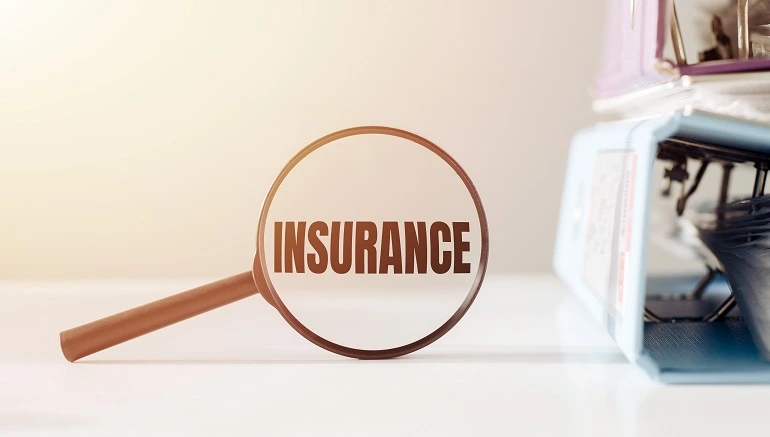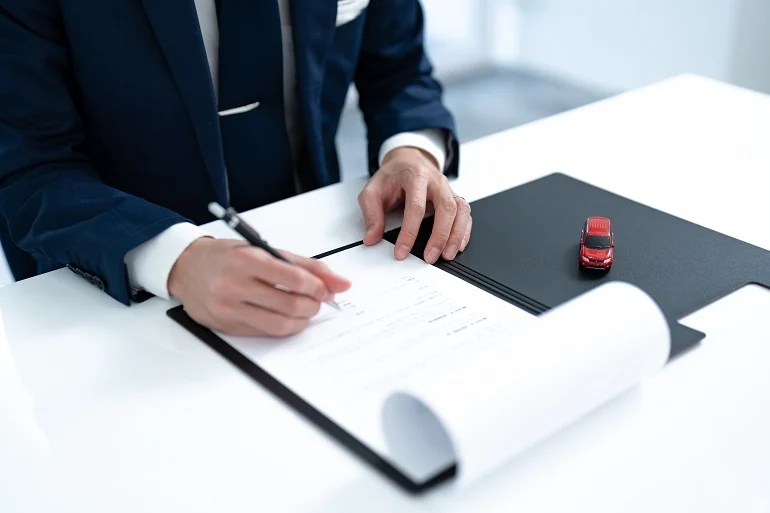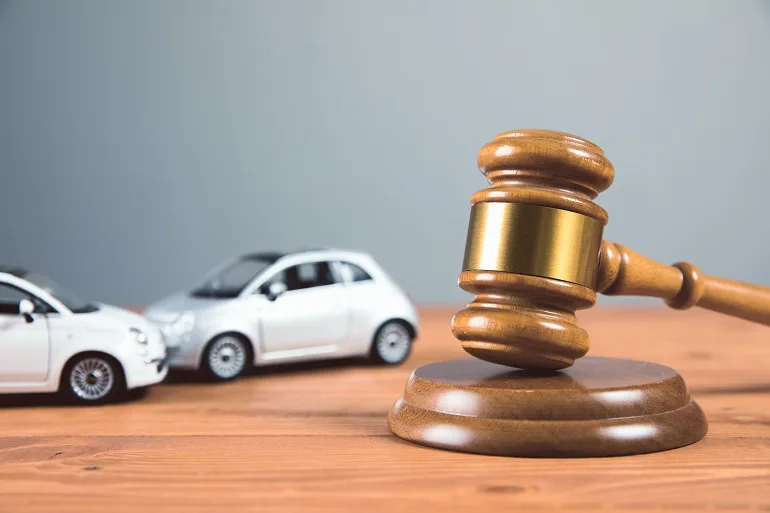You never expected your day to end in the chaos of a car crash, and as a passenger, you had no control over what happened. Now you’re left hurt, shaken, and unsure of what to do next. Medical bills may be piling up, and all the while, you’re hesitant to take legal action because your driver was a friend or family member. If the other driver caused the crash, that’s fine. Go after them. But you’re worried it might affect your friend or loved one.
If your driver caused the accident, that guilt is understandable — but here’s the truth: you’re not suing them personally. You’re pursuing a claim through their insurance, which exists to cover exactly these situations. You didn’t cause the accident, and you shouldn’t have to bear the financial and emotional fallout alone. You have rights, and it’s okay to use them.
This guide outlines your rights, insurance options, and essential steps to take after a passenger vehicle accident. Whether you are wondering about your options or searching for car accident lawyers, everything you need is right here.
Can a Passenger Sue After a Car Crash?

If you were a passenger in a car crash in Florida, you are likely not at fault, and that matters. The state's laws acknowledge that passengers are rarely responsible for causing a collision. Because of that, you are protected and have a legal right to collect compensation through Personal Injury Protection (PIP) or even file a personal injury claim for your injuries.
Florida operates under a no-fault insurance system, as outlined in Florida Statutes § § 627.730-627.7405, providing immediate protection for all drivers and passengers injured in a car accident. Changes may be introduced with Senate Bill 1256, potentially eliminating PIP requirements by July 2026; however, your current protections remain in place.
Multiple Insurance Options Available to You
As a passenger in a car crash, you may have multiple insurance options to cover medical expenses and damages. Knowing how these work is key to getting proper treatment and fair compensation.
Personal Injury Protection (PIP): Your First Line of Coverage
The Personal Injury Protection (PIP) system provides immediate coverage for passengers, regardless of who is at fault for the accident. This coverage kicks in automatically after any vehicle collision involving a Florida-registered vehicle. PIP insurance covers passengers whether they are in their own family member's car or someone else's vehicle.
The current PIP coverage includes:
- $10,000 coverage limit per person
- 80% of medical expenses
- 60% of lost wages
- 14-day treatment window to seek medical attention immediately
- Death benefit of $5,000
Can you receive compensation for being a passenger in a car accident? Absolutely. PIP provides immediate compensation for medical bills and lost wages, while additional compensation may be available through liability claims.
At Fault Driver's Insurance and Third-Party Claims

You may also be eligible to file a bodily injury liability claim against the at-fault driver's liability insurance company. Sometimes, the other vehicle involved is the cause, and other times, it is the person driving the car you were in.
If your medical expenses exceed the $10,000 PIP cap or if you have suffered serious injuries, you may be able to seek compensation through third-party claims.
In multi-car crashes or unclear fault cases, you may be able to pursue claims from both drivers involved.
Your Own Insurance Options
If you have your own auto insurance policy, you may be able to use uninsured/underinsured motorist coverage under Florida Statutes § 627.727. Using your own UM/UIM coverage typically will not increase your rates since you were not at fault for the accident. Family members living in the same household may also access their insurance policies for additional coverage. Your own insurance company may cover damages if the at-fault driver is uninsured or in hit-and-run accidents, helping you recover compensation in difficult cases.
Rideshare Scenarios (Uber/Lyft)
Rideshare passenger rights are protected under Florida Statutes § 627.748 which requires specific insurance coverage during various phases of rideshare operations. As a passenger in an Uber or Lyft vehicle, you have access to $1 million in liability coverage during active rides.
Rideshare coverage has three phases: off-duty (personal insurance), on-duty without a rider (limited coverage), and with a rider (full coverage). If you have suffered injuries in Uber accidents, substantial insurance resources await your claim.
Types of Injuries That Qualify for Lawsuits
Even injuries that seem minor initially can qualify if they result in permanent effects or require extensive medical treatment. The key factor is demonstrating that your injuries have had a lasting impact on your ability to work, enjoy life, or perform daily activities.
The following injuries typically meet the serious injury threshold:
- Whiplash with complications: Neck and Back injuries causing chronic pain or long-term effects.
- Broken bones and fractures: Bone breaks, from minor to complex cases requiring surgery.
- Permanent disabilities: Long-term impairments affecting mobility, strength, or daily tasks.
- Significant scarring and disfigurement: Visible marks that impact appearance and confidence.
- Herniated or bulging discs: Spinal injuries causing ongoing pain and limited movement.
- Severe soft tissue damage: Muscle, ligament, or tendon damage needing extensive care.
- Traumatic brain injuries: Head trauma affecting memory or cognitive function.
- Internal organ damage: Injuries needing surgery or ongoing internal medical care.
I Was a Passenger in a Car Accident: Who Do I Sue?
As a passenger in a car accident, you may be wondering who you can hold accountable. Multiple parties might bear responsibility for your injuries, and identifying all liable parties maximizes your potential compensation.
Here is who you can pursue for damages:
- At-fault driver: The person who caused the accident serves as your primary target for a personal injury lawsuit.
- Driver of your vehicle: Even when another driver was mainly responsible, your driver might share partial blame.
- Vehicle owners: When either driver was using someone else's car, the car owner may face liability.
- Government entities: Poor road maintenance or faulty traffic signs could make government agencies liable.
- Vehicle manufacturers: Defective parts or malfunctioning safety systems might lead to product liability claims.
- Rideshare companies: Uber, Lyft, or other rideshare companies may be liable for their driver's negligence.
If you’re a passenger in a car accident, compensation often flows from multiple sources rather than just one defendant. Our experienced car accident attorneys will utilize their expertise and advanced knowledge to thoroughly investigate every potential source of liability, maximizing your recovery.
What Compensation Can a Passenger Recover in Florida?

Passenger in car accident compensation stretches far beyond basic medical bills. Through PIP benefits and personal injury claims, you can recover multiple types of damages that address both your immediate needs and long-term impacts.
Available compensation includes:
- Medical expenses: All current and future medical bills related to your crash injuries.
- Lost wages: Income you have missed due to your inability to work after the accident.
- Pain and suffering: Money for physical pain, emotional distress, and reduced quality of life.
- Property damage: Repair or replacement costs for personal belongings damaged in the crash.
- Disability benefits: Long-term financial support if your injuries cause permanent limitations.
- Wrongful death: You may pursue a wrongful death claim for additional compensation if you have lost a family member in the accident.
Florida's comparative fault laws (§768.81) might reduce your compensation if you somehow contributed to the accident circumstances. For instance, not wearing a seatbelt could decrease your settlement amount, but it will not eliminate your right to compensation entirely.
Critical Steps to Take After Your Accident
The steps you take after being involved in a crash matter — both for your health and for your legal claim. These actions help preserve your passenger rights and ensure you can collect compensation.
Immediate Medical and Legal Priorities
Seek medical attention immediately, even when you feel fine right after the crash. Many car accident injuries, including whiplash, concussions, and internal injuries, do not reveal symptoms for hours or even days.
A 14-day PIP treatment window is absolutely critical for maintaining your no-fault benefits. Waiting longer than 14 days to seek medical treatment can jeopardize your ability to recover PIP benefits for your crash-related injuries.
Filing a Florida Traffic Crash Report
When accidents result in injuries, death, or property damage exceeding $500, Florida law requires the filing of a crash report with law enforcement. This police report becomes crucial evidence for your insurance claims and any potential personal injury lawsuit. Always request a copy of the report for your records, as it serves as an official account of the accident circumstances.
Collecting Documentation
Proper documentation is key to supporting your insurance claim or lawsuit. Take photos of vehicle damage, road conditions, and injuries. Collect contact info from all drivers and witnesses, and gather insurance details. Keep medical records, bills, proof of lost wages, and receipts for crash-related expenses, such as medication or transportation to work or doctor’s appointments.
Filing a PIP Claim
Contact the insurance company covering the vehicle you were riding in to file your PIP claim as quickly as possible. PIP benefits should start immediately, covering your medical expenses and lost wages according to the policy terms. Do not wait for fault determination — PIP coverage applies regardless of who caused the vehicle collision.
How a Board-Certified Florida Car Accident Attorney Can Help

While passengers enjoy strong legal protections, navigating the complex insurance landscape can often prove challenging without assistance. Insurance adjusters frequently try to minimize passenger claims or deny coverage altogether.
An attorney can help you with:
- Navigate multiple insurance policies and coverage options effectively
- Negotiate with insurance companies for fair settlement amounts
- Identify all potential sources of compensation from various parties
- Handle complex legal procedures and strict deadlines
- Represent you in court proceedings if necessary
- Maximize your recovery from all available insurance sources
Legal representation becomes particularly important when dealing with serious injuries, disputed liability, or multiple insurance companies. Attorneys work on a contingency fee basis, meaning you do not pay legal fees unless you win your case and recover compensation.
You Deserve Care and Justice
As a passenger in a car crash, you possess significant rights and multiple options for recovering compensation. The no-fault insurance system provides immediate PIP benefits, while liability claims can deliver additional compensation for serious injuries.
At Michles & Booth, we understand the unique challenges passengers face after car accidents. Over the last many decades, our Florida personal injury law firm has helped countless passengers recover the compensation they deserve. With over 25 years of experience, we know how to navigate the complex insurance system and fight for your rights. Contact us today for a free consultation and let us help you get back on your feet.

Schedule a Free Consultation with Our Attorneys Today!
get a Free Consultation
(850) 438-4848
Get Help Understanding Your Rights After a Crash. Call for Honest Answers.
Navigating insurance claims and legal options after a passenger car accident can be overwhelming. Our experienced team helps passengers understand their rights and assists them in pursuing maximum compensation.

Heading
Lorem ipsum dolor sit amet, consectetur adipiscing elit. Phasellus vel est vel sem porttitor ullamcorper. Aliquam hendrerit vestibulum quam ac posuere. Vestibulum ultricies enim quam, ac vestibulum mauris iaculis ac.

(850) 438-4848
.svg)



.svg)

